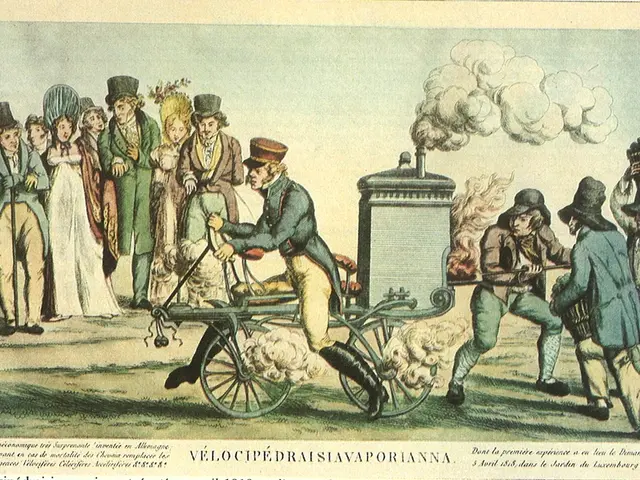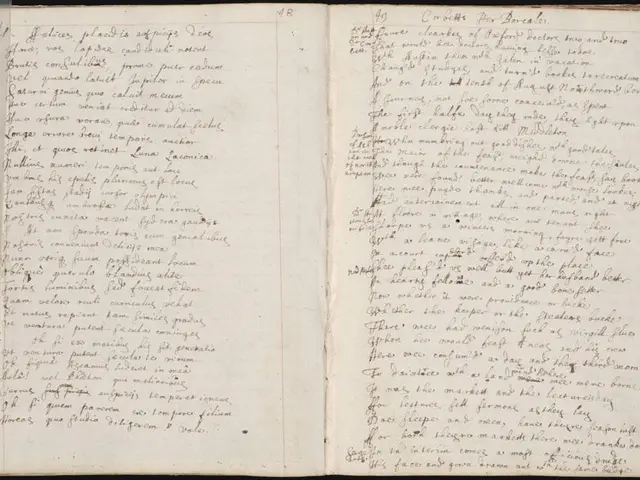Trumpen 1's Escape from the Eastern Battlefront
Georg Mair and the Deserters of Operation Citadel: A Closer Look
Georg Mair and the Desertion Movement
During the tumultuous period of Operation Citadel in 1943, a group of Wehrmacht soldiers, led by Georg Mair and Otto Maurer, made a bold move against the backdrop of the intense battlefield. Their decision to desert from the German forces would come to symbolise the growing discontent within the ranks of the German army.
- Background: Georg Mair, a 29-year-old stonemason, farmer, and hunter, found himself in the midst of the Battle of Kursk, a pivotal moment in World War II. Mair and his comrades were part of the Wehrmacht's offensive, Operation Citadel, a massive tank battle that aimed to encircle and destroy a large part of the Soviet forces on the Eastern Front.
- Desertion: As the battle raged on, Mair and his fellow deserters, disillusioned with the Nazi leadership and the seemingly lost cause, decided to take a stand. They deserted from their unit during the heat of the battle, a risky move given the strict military discipline and the potential death penalty for desertion.
- Escape: Mair devised a daring plan to escape the front line unharmed. He arranged for a comrade to pretend to kill him, hoping this would allow him to slip away unnoticed. The exact details of his escape are unclear, but it is known that he made it to Innsbruck, Austria, after eight days of travel by train and on foot.
The Impact of Desertion
- Military Impact: While individual desertions like Mair's did not decisively impact the outcome of Operation Citadel, they reflected the deteriorating morale and growing war-weariness among German troops. The desertion of soldiers like Mair served as a small but significant blow to the cohesion and effectiveness of the Wehrmacht.
- Symbolic Impact: Mair's desertion stands as a powerful symbol of the internal challenges faced by the German military during World War II. It serves as a microcosm of the wider discontent within the ranks, foreshadowing the eventual collapse of the Eastern Front.
- Historical Significance: Accounts like that of Georg Mair help historians understand the human dimension of warfare beyond grand strategies and official reports. They highlight the ethical and personal struggles soldiers faced, which are often overshadowed by larger military events.
The Deserters of the Alpine Regions
Mair and his fellow deserters formed one of the largest groups of deserters in the Alpine regions and South Tyrol. Their actions were not isolated incidents; partisan groups in Russia, Belarus, and Ukraine were also launching attacks on German supply lines behind the front lines. The Wehrmacht began investigations into Mair's disappearance in March 1944, and it was discovered that approximately a dozen other men, including cousins, relatives, and acquaintances from the area, also refused military service before the end of the war.
Conclusion
Georg Mair's decision to desert during Operation Citadel was a testament to the pressures faced by German soldiers and the declining effectiveness of the Wehrmacht in the later stages of World War II. While small in scale, such acts revealed critical internal challenges for the German military, contributing to the eventual failure of the offensive and the shifting tides on the Eastern Front. The stories of soldiers like Mair serve as a poignant reminder of the human cost of war and the ethical dilemmas faced by those caught in its maelstrom.
Read also:
- United States tariffs pose a threat to India, necessitating the recruitment of adept negotiators or strategists, similar to those who had influenced Trump's decisions.
- Weekly happenings in the German Federal Parliament (Bundestag)
- Southwest region's most popular posts, accompanied by an inquiry:
- Discussion between Putin and Trump in Alaska could potentially overshadow Ukraine's concerns








